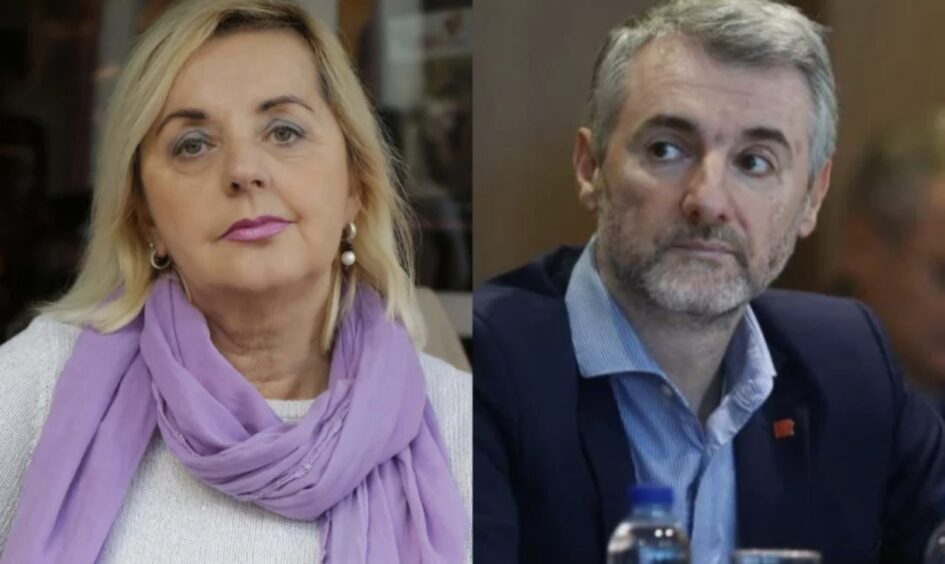
Minister of Communications and Transport of Bosnia and Herzegovina, Edin Forto, gathered on Thursday, July 24, at the Council of Ministers, several media outlets whose survival is uncertain, as well as representatives of the recently shut down Al Jazeera Balkans.
This “meeting” sparked mixed reactions from the public, although minister Forto did not officially announce it. The portal Radiosarajevo.ba contacted Mr Forto for comment, to which he replied with thanks for the interest and stated he had no comment.
Good vs Bad
We requested a comment from the BH Journalists Association, specifically from its Secretary General Borka Rudić, who stated that such meetings are problematic if their purpose is not transparently communicated to the public.
“It is always a good thing when public authorities meet with journalists and media representatives to find the best solutions for media sustainability and their work without financial uncertainty or other restrictions on media freedom. But it is always bad when such meetings are reserved only for selected media outlets and when the motive, participants, and outcomes-or recommendations for future action-are not transparently presented to the public.
In that context, I understand the meeting between Minister of Communications and Transport Edin Forto and a number of media representatives as an attempt to find solutions for their survival after USAID withdrew support for independent media and some outlets were shut down by their owners. After all, the minister did not meet privately with selected media and journalists to help them with his own money, but in his official capacity as a public official and head of a ministry that, among other responsibilities, is tasked with creating an enabling environment for the media and journalists.”
The Minister, therefore, has an obligation to inform the public about this meeting and the measures he intends to take in order to help save the media and journalism as a public good. Publishing the outcomes of the meeting would dispel publicly expressed doubts that Minister Forto is favoring certain media outlets while discriminating against others, and that he lacks an equal and fair approach toward all journalists who have lost their jobs. This is how serious and responsible governments operate around the world-many have already found alternative funding channels for the media, since the termination of USAID support has affected not only media in BiH but across the globe,” Rudić told the portal Radiosarajevo.ba.
She went on to point out that enough time has passed for the authorities to take action, yet that has not happened.
“It’s also important to emphasize that it has now been a full six months since the suspension of USAID support for media was announced-a reasonable period in which the Ministry of Communications and Transport could have adopted emergency support measures, established a dedicated Media Support and Pluralism Fund, or launched a public call for media support and co-financing… Unfortunately, nothing has happened-not a single level of government has taken any steps toward creating support models or defining criteria and rules for the allocation and use of public funds to ensure the sustainability of the media sector. Since December 2018, a proposal for the creation of a Media Support Fund has been sitting in the drawers of the Ministry of Communications and Transport, as part of the Draft Law on Media Ownership Transparency and procedures for transparent media financing with public money.”
Therefore, Minister Forto and the Ministry of Communications and Transport, along with other relevant authorities, now have a unique opportunity to demonstrate greater political will and responsibility toward the sustainability of the media sector in BiH. This can be done by pulling existing proposals out of the drawer and either establishing a Media Support Fund as a long-term solution or approving emergency funds through public calls, grants, or direct aid to media outlets. Along with the decision on the support model, it is crucial that the process be accompanied by simple, clear, and publicly available criteria that will ensure access to funding for all media in an equal and timely manner,” Rudić stated.
“Support Must Not Be Politically Motivated”
She emphasized that media support must not be politically conditioned.
“In this situation, it is especially important to highlight that support for the media must never be politically conditioned or tied in any way to the media working in the interests of politicians or political parties that may be making decisions on media aid. That is absolutely unacceptable and contrary to the standards of media freedom and the independent role of journalists. Unfortunately, that has not always been the case in the past-public funds have often been used to pay for political propaganda, clientelist content, and work serving party interests rather than those of the public.
On the other hand, media outlets themselves, in their fight for survival and more funding, must clearly demonstrate that they will use such funds to produce quality media content, investigative reporting, critical analysis of public decisions, and a diversity of viewpoints. Media must also become more transparent with the public regarding their ownership and governance, editorial decisions about the publication of certain content, and the credibility of their sources. From the BH Journalists Association’s perspective, only those media that uphold and practice journalism as a public good-and operate in a fair, balanced, and publicly responsible manner-deserve financial support from public budgets,” Rudić concluded for Radiosarajevo.ba.
The source: Radiosarajevo.ba
Photo: BH novinari / Radiosarajevo.ba
Translate in English by BH Novinari



